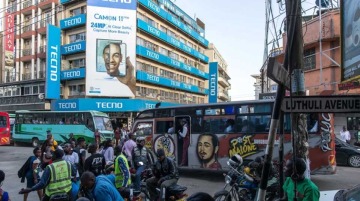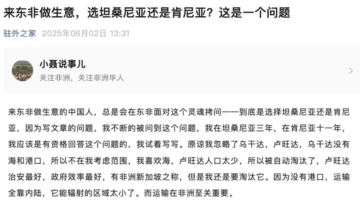
A Johannesburg court recently sentenced seven Chinese nationals to 20 years in prison each for trafficking 91 Malawian workers and forcing them into labor at a textile factory. The high-profile ruling has not only drawn headlines, but also triggered a new wave of enforcement pressure on Chinese businesses operating in South Africa.
According to Very South Africa (非常南非), a WeChat account widely read among the local Chinese community, the verdict has shaken Chinese business circles and coincides with visibly tighter inspections across the country.
Factories have not been spared. On September 12, a Chinese-owned cement products plant in Rustenburg was ordered to suspend operations during a raid personally led by Deputy Labor Minister Jomo Sibiya. Inspectors listed violations in detail: lack of formal labor contracts and payslips, failure to register and report employees to the UIF (unemployment insurance fund), substandard equipment checks, and inadequate safety measures in noisy or dusty areas—where proper markings, signage, and PPE were missing.
The company was also accused of hiring undocumented workers or employees with mismatched visas. Forklifts and mixers were slapped with prohibition notices, fines were issued on the spot, and Sibiya ordered an investigation after reports surfaced that the inspection team’s arrival had been leaked in advance.
The ripple effects are being felt across Johannesburg’s Chinese commercial hubs. In Fordsburg’s “Hong Kong City,” shops were raided for licenses, fire exits, and health permits, with non-compliant businesses shut down immediately. Bruma’s “Chinatown” has also seen joint operations by immigration, police, and city enforcement teams. Merchants report weekday traffic thinning out as customers “buy and leave quickly,” though weekend trade remains steadier.
Many shopkeepers have grown more cautious, conducting self-checks on side operations such as snack counters, makeshift storage, or gas canisters, worried that even if their core business is fine, small irregularities could be exposed. Some now keep all licenses, inspection reports, invoices, and supplier certificates neatly bound behind the counter, ready to present at a moment’s notice.
Why is This Important? The stepped-up enforcement highlights a shift in South Africa from sporadic, campaign-style crackdowns to frequent and routine inspections. For Chinese businesses, this means every aspect of operations—from shopfront licenses to labor contracts, immigration compliance, workplace safety, and product authenticity—is now under close watch. For traders and investors eyeing the South African market, compliance is no longer optional or reactive, it has become an essential part of day-to-day business survival.









